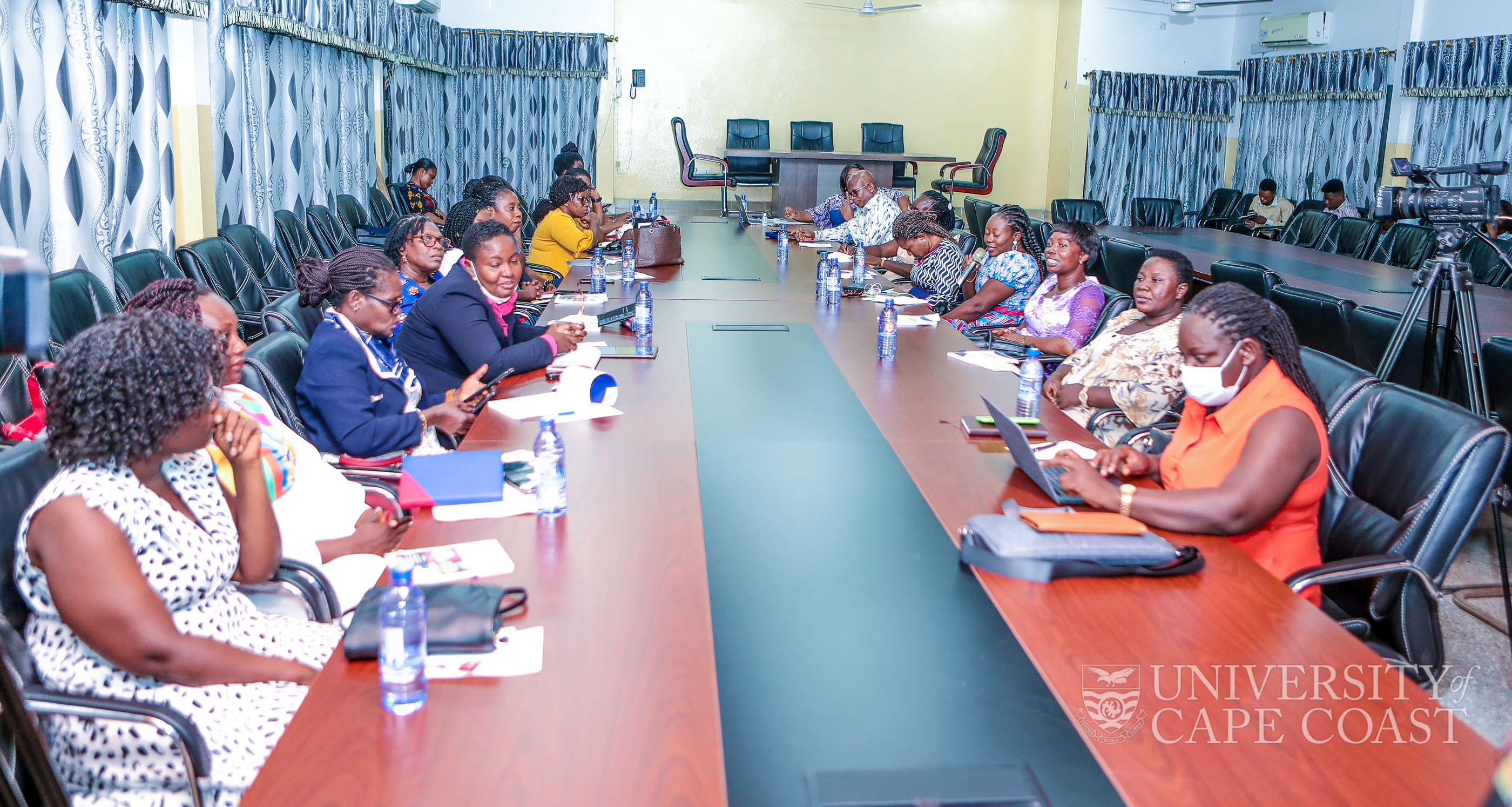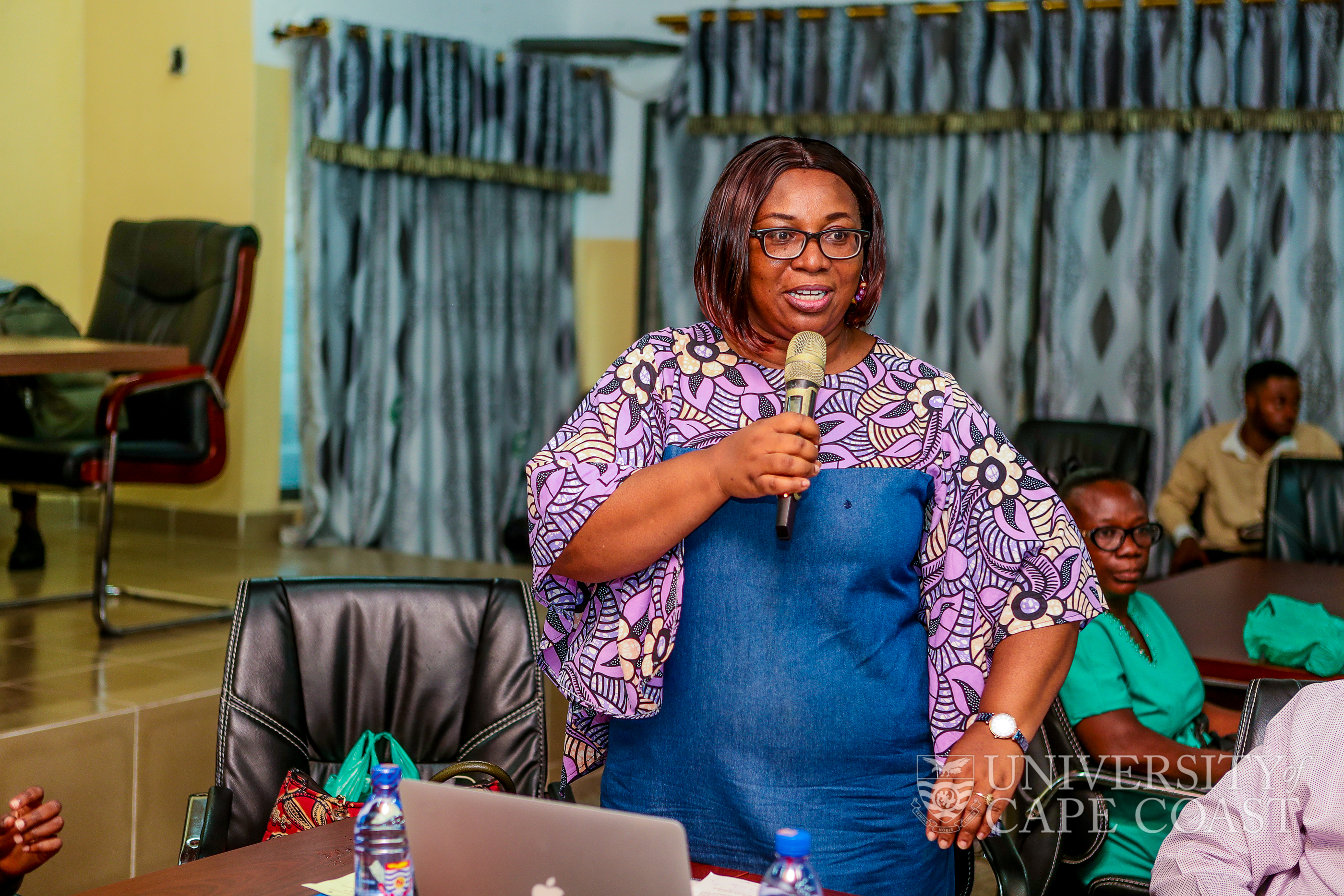The Central Regional Director of the Domestic Violence and Victim Support Unit (DOVVSU) of the Ghana Police Service, Chief Superintendent George Appiah-Sakyi, has explained that men cannot be raped under the laws of Ghana.
"In matters of rape, only girls and women can be raped in Ghana. No man can be raped in Ghana. That is the law- section 97," he pointed out.
Chief Superintendent Appiah-Sakyi was addressing a workshop for Girls' Education Officers in the Central Region.
Participants in the workshop
The Regional Director, who was speaking on the topic, "The Law, Defilement, Rape and Related Sanctions", indicated unlike rape, defilement does not require consent of the girl-child who is below sixteen (16) years.
He stressed, "When it comes to investigating defilement and rape cases, age is very important."
Chief Superintendent Appiah-Sakyi called on stakeholders to always furnish DOVVSU with birth certificates, weighing cards, baptismal cards and school registers to facilitate investigations regarding defilement and rape allegations.
He added the punishment for defilement was a minimum of seven (7) years and maximum of twenty-five (25). For rape, the minimum was five (5) years and maximum twenty-five (25)".
He said Section 104 of the Criminal and other Offenses Act, 1960 (Act 29) proscribed unnatural carnal knowledge. He also advised the Ghana Education Service to employ security men to man uncompleted buildings on School compounds to ward off irresponsible adults from engaging in sexual affairs with children.
Dr. Georgina Yaa Oduro, Director of CEGRAD-UCC
In a her address, the Director of CEGRAD-UCC, Dr. Georgina Yaa Oduro, observed that CEGRAD was aware of basic school children in the region were facing rape and defilement, hence the need to empower Education Officers in the region to apprise them of the need to educate the pupils.
She explained the roles of CEGRAD to the participants, which included the protection and empowerment of girls.
Source: Documentation and Information Section-UCC



